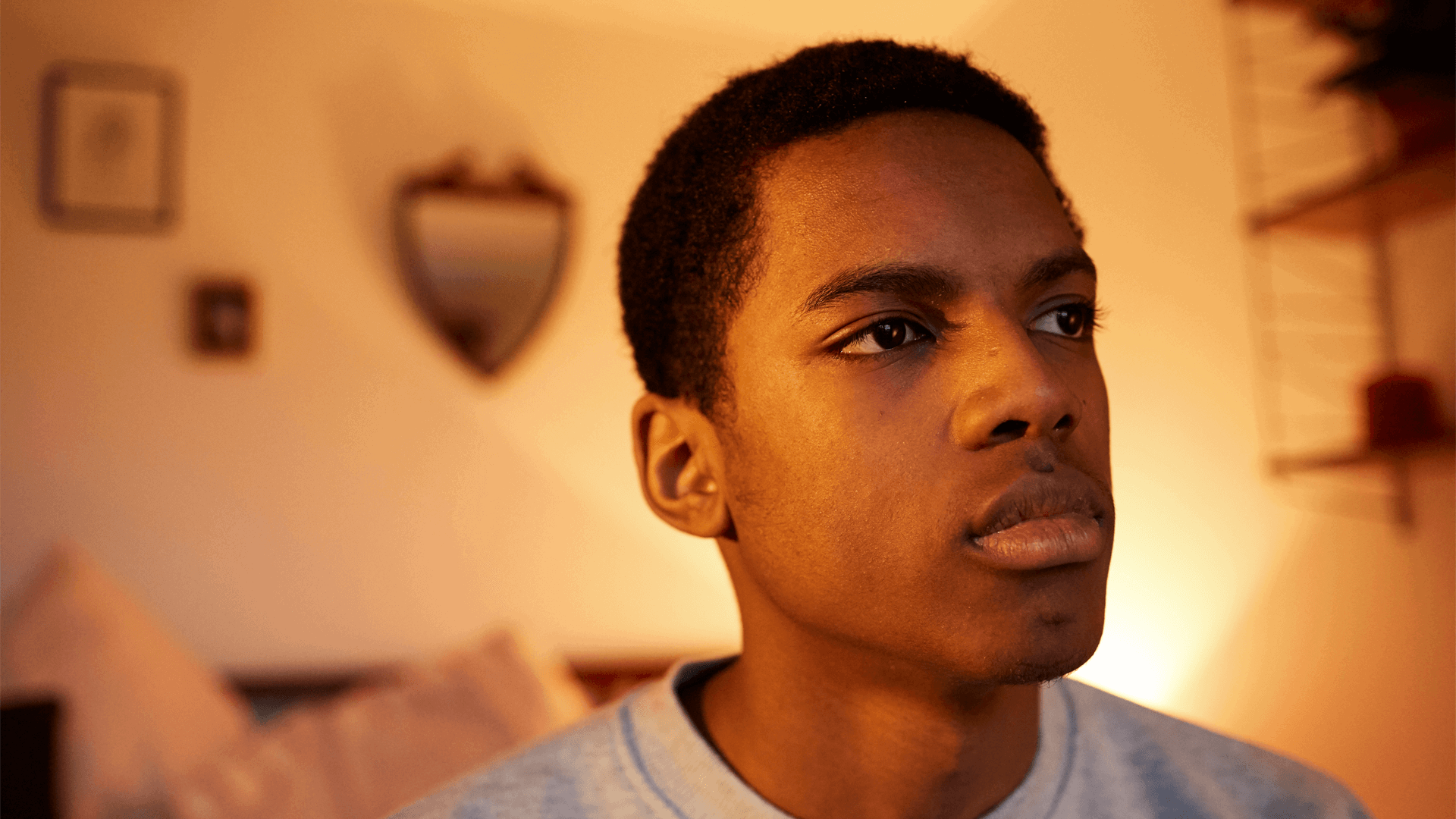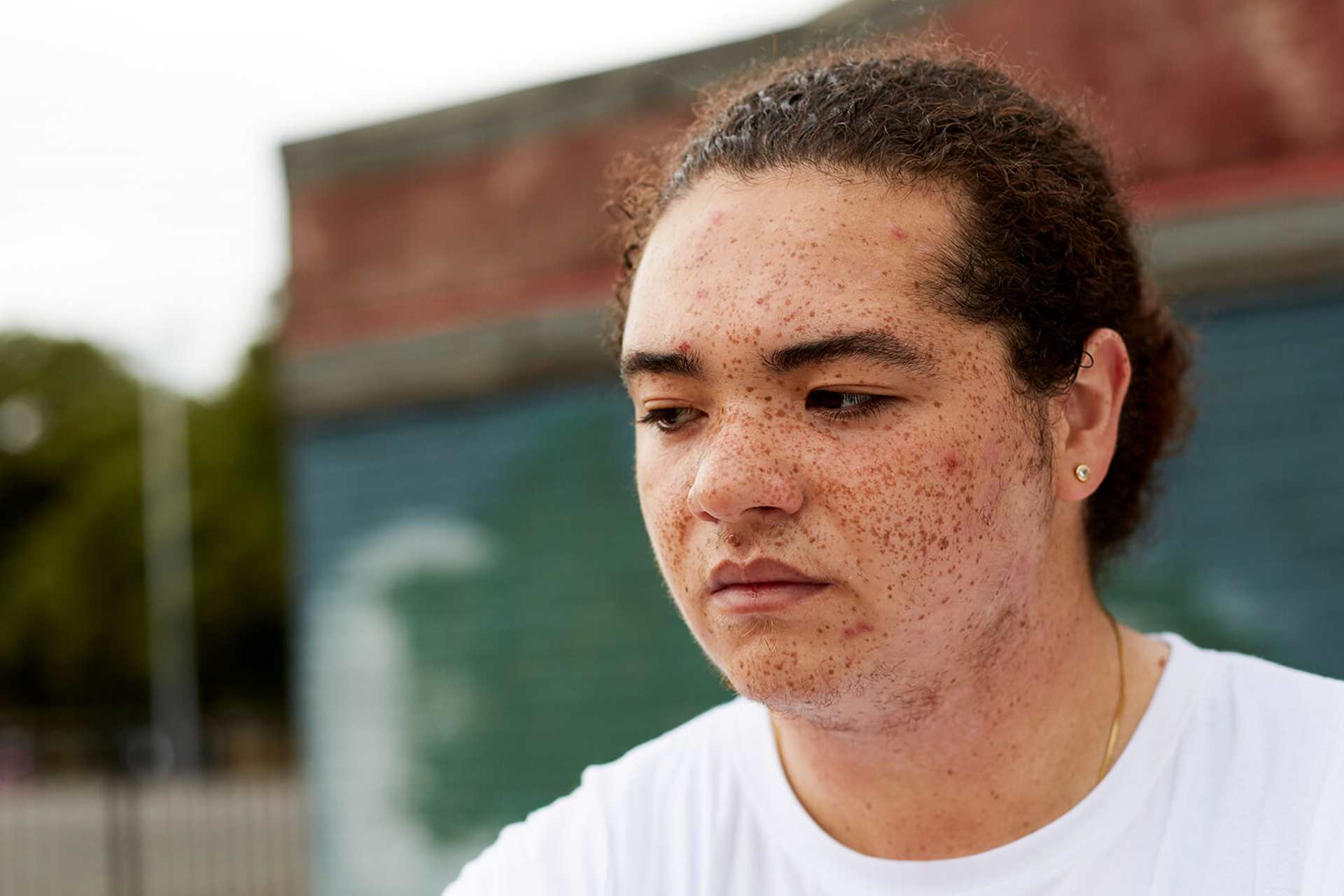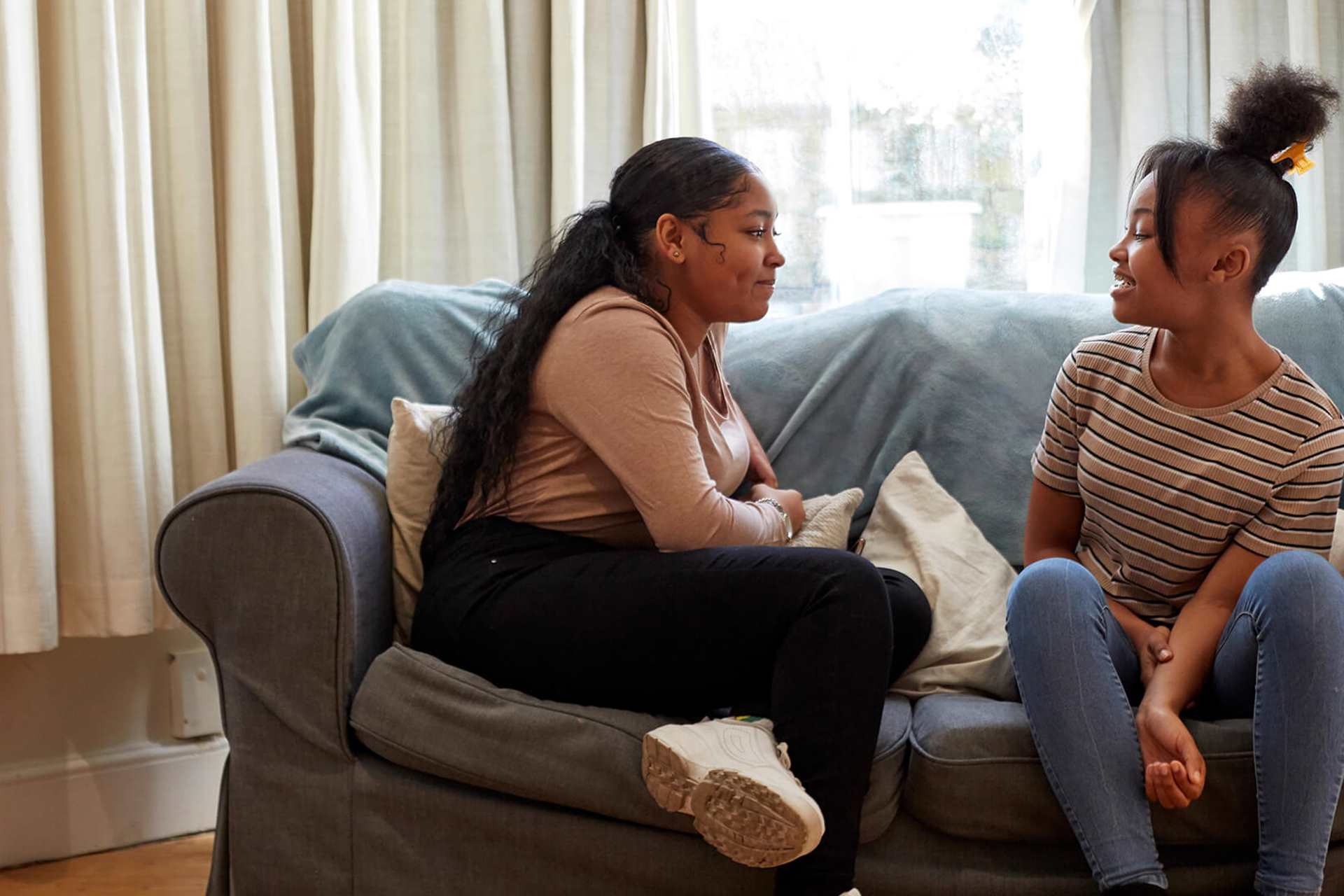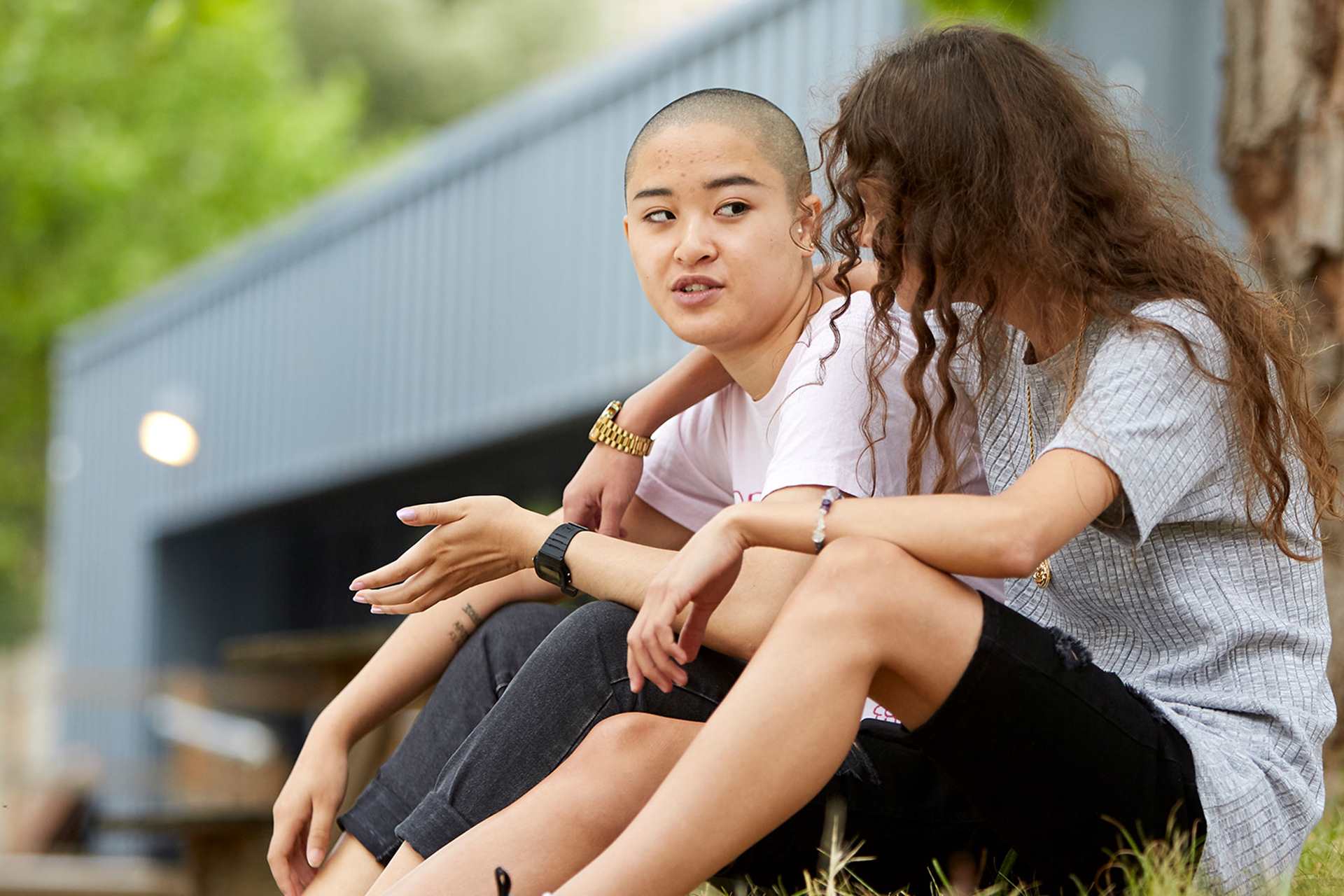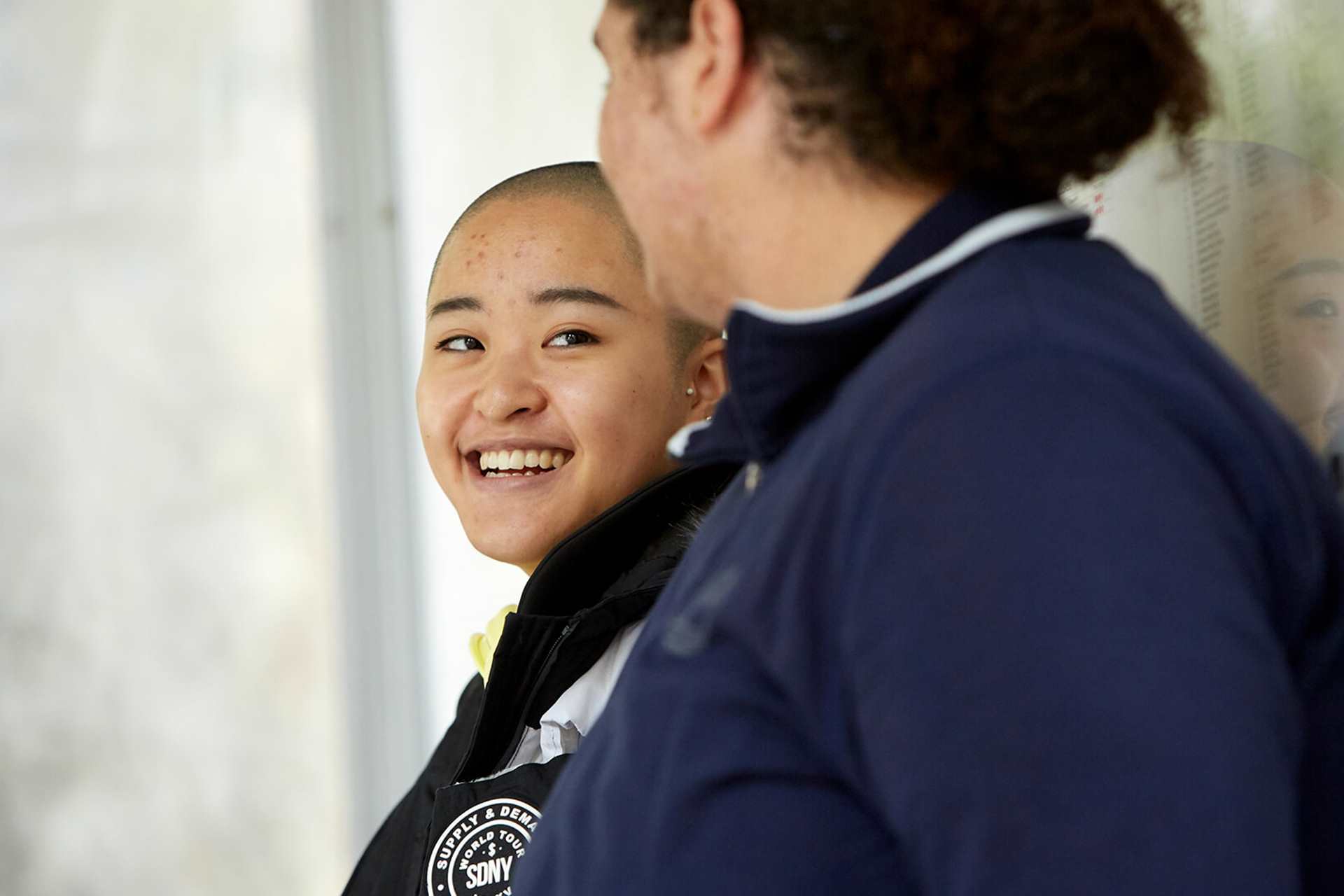Topics mentioned: anxiety, sleep problems
About: Paddy shares his experience of sports performance anxiety and how it almost stopped him from playing rugby, until he was able to change his perspective.
Rugby became time that I spent with friends, and as something to enjoy, rather then worrying about the result.
Playing sport for a club or school is meant to be something fun. However, the presence of anxiety and nerves can have the opposite effect.
I have played rugby since I was five. It has given me lots of great memories, but over the years it has caused me my fair share of anxiety. The anxiety associated with playing began when I started playing for my school team when I was 11. Up until that point I had been playing local club rugby, but playing for my school team I had the feeling that I had to play well, and if I didn’t, I would let my team down.
I remember sitting in the boot of my dad’s car, and my dad asking me, “are you cold?” because my legs were shaking so much. The truth was my legs were shaking because of my anxiety about the game. But this did not start on the morning of the game. The nerves had been building up for days before.
I would lie awake worrying about the upcoming match, and because I hadn’t eaten, I wouldn’t have any energy.
What competition anxiety looks like for me
I would worry about everything that may impact my performance. I would worry about getting a good night’s sleep before the game and that if I didn’t go to bed by a certain time, I would play badly and my team would lose, and it would be all my fault.
I would go to bed really early for days leading up to the match, which took the excitement away, because I was so stressed about ensuring I slept well. On the morning of games, I would wake up with butterflies in my stomach, and I wouldn’t be able to eat. In truth these two things probably made my performance worse. I would lie awake worrying about the upcoming match, and because I hadn’t eaten, I wouldn’t have any energy.
The anxiety continued after the match. If we had lost, I would spend the rest of the day in a bad mood, rethinking the events of the game, and all the things I could have done differently. Even if we had won, I would still look back and think of all the things I could have done differently.
The negative emotions associated with playing became so overwhelming that I stopped playing rugby for six months.
How I changed my perspective
By the time I was 13, the negative emotions from both before and after the match had made me fall out of love with the sport that used to bring me great joy. The negative emotions associated with playing became so overwhelming that I stopped playing rugby for six months. However, I longed to be back on the pitch, and missed spending my Sunday morning playing the sport I loved with my friends.
Therefore, I vowed that I wouldn’t allow the anxiety to ruin my enjoyment. I did this by using perspective. I changed my own perspective about the games, and put the results into perspective.
Although I wanted to win, this was no longer the most important thing to me. Instead, I looked forward to spending time with my friends, and just enjoying the excitement of being out on the pitch, where it seemed like the rest of my problems disappeared. Rugby became time that I spent with friends, and as something to enjoy, rather then worrying about the result.
I told myself that the results do not matter. I was playing rugby with 14 of my friends, and by Monday, everyone had forgotten the result anyway. I asked myself, “what is the worst that can happen?” Even if I did play badly, which I have done many times, no one cares. Everyone makes mistakes. I am not playing in the World Cup final.
This change in perspective really helped me fall back in love with rugby. It felt like a weight off my shoulders. Sometimes I play well, sometimes I play less well, but this is no longer the defining memory for me. When I look back, I remember the great times I have had with friends, and not the result of the match.
When I look back, I remember the great times I have had with friends, and not the result of the match.
More information and advice
We have tips and advice to help you find the support you need. Take a look at our guides.
Where to get help
However you're feeling, there are people who can help you if you are struggling. Here are some services that can support you.
-
Childline
If you’re under 19 you can confidentially call, chat online or email about any problem big or small.
Sign up for a free Childline locker (real name or email address not needed) to use their free 1-2-1 counsellor chat and email support service.
Can provide a BSL interpreter if you are deaf or hearing-impaired.
Hosts online message boards where you can share your experiences, have fun and get support from other young people in similar situations.
- Opening times:
- 24/7
